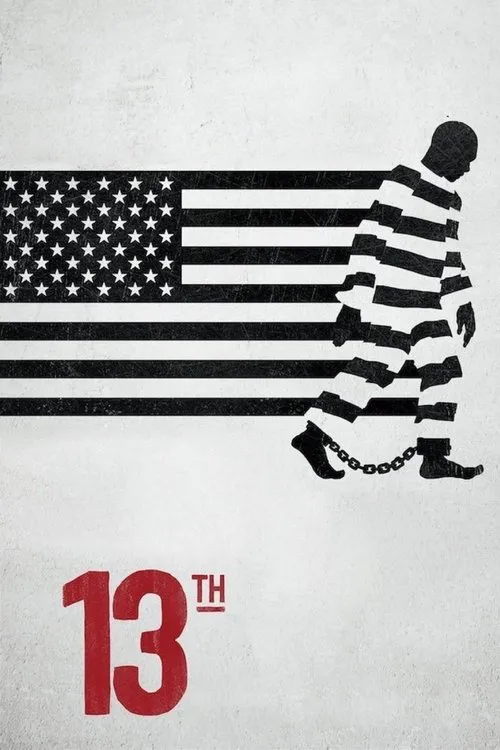13th

Plot
Directed by Ava DuVernay and released in 2016, 13th is a documentary film that provides a poignant examination of the relationship between slavery, mass incarceration, and racial inequality in modern-day America. The film's title refers to the 13th Amendment to the United States Constitution, which was ratified in 1865 and abolished slavery. However, the amendment contains a loophole that allows for the imprisonment of individuals convicted of a crime, effectively maintaining the institution of slavery in a new, albeit more subtle, form. DuVernay's film delves into the historical roots of the prison system, tracing its development back to the post-Civil War era. She notes that after the Emancipation Proclamation, newly freed slaves were forced to navigate a system of sharecropping and Jim Crow laws that severely limited their economic and social mobility. Many were arrested and imprisoned for minor offenses, such as vagrancy or loitering, under the guise of maintaining public order. This led to the widespread exploitation of African Americans by the prison industrial complex. The film features interviews with a range of experts, including civil rights activists, lawyers, historians, and former inmates. One of the most compelling segments showcases the work of Dr. Angela Davis, a scholar and activist who has dedicated her career to exposing the racist underpinnings of the prison system. Davis explains that the concept of mass incarceration is rooted in a centuries-long history of slave labor, in which African Americans were forced to work in harsh conditions for minimal pay. DuVernay also explores the relationship between slavery and the prison system through the lens of the 13th Amendment. The amendment, which was ratified in 1865, explicitly prohibits slavery except as punishment for a crime. DuVernay argues that this loophole has been used to justify the incarceration of millions of African Americans, with many facing lengthy sentences for non-violent offenses. She notes that this has led to a phenomenon known as "convict leasing," in which private companies are granted contracts to manage and profit from prisons. One of the most striking aspects of the film is its critique of the myth of the "War on Crime." DuVernay argues that this narrative, which emerged in the 1960s and 1970s, was used to justify the expansion of the prison system and the escalation of policing in urban communities. Under this framework, policymakers and law enforcement officers were able to frame social and economic problems as matters of crime and punishment, rather than as issues of poverty, inequality, and access to resources. DuVernay also examines the role of politicians and policymakers in perpetuating mass incarceration. She notes that the 1971 United States Supreme Court decision in Furman v. Georgia, which ruled that the death penalty was unconstitutional, was used as a justification to impose harsher sentences and expand the prison system. Meanwhile, politicians have used the language of "crime control" to justify policies that disproportionately affect African Americans and other marginalized groups. The film also highlights the impact of mass incarceration on families and communities. Many former inmates, including those who were sentenced to life without parole for non-violent offenses, share their stories of struggle and resilience. DuVernay notes that the ripple effects of mass incarceration can be seen in the rising rates of child poverty and educational attainment, as well as the declining health outcomes and life expectancy for African Americans. Ultimately, 13th is a powerful indictment of a system that has perpetuated racial inequality and punished the poor for centuries. Through its thought-provoking narrative and rigorous research, DuVernay's film provides a damning critique of the prison industrial complex and offers a hopeful vision for a more equitable and just society. By exploring the complex interplay between history, policy, and culture, 13th encourages viewers to reexamine their assumptions about the role of incarceration in modern America and to consider the far-reaching consequences of a system that has failed to deliver on the promises of equality and freedom.
Reviews
Recommendations




